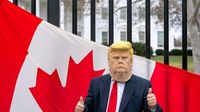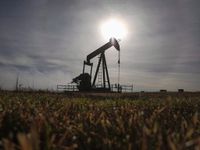As the Canadian federal election campaign heats up, the auto industry has taken center stage amid concerns over tariffs and production shifts. Reports surfaced this week suggesting that Honda, one of the largest automakers operating in Canada, was considering relocating some of its manufacturing operations from Canada and Mexico to the United States due to ongoing trade tensions. Both Honda and the Canadian government quickly dismissed these rumors, emphasizing the importance of the auto sector to the Canadian economy.
On April 15, 2025, Honda Canada released a statement asserting that it has no plans to move production out of Canada. "We can confirm that our Canadian manufacturing facility in Alliston, Ontario, will operate at full capacity for the foreseeable future and no changes are being considered at this time," the company said. This announcement came in response to a report from the Nikkei newspaper, which claimed that Honda was weighing the possibility of shifting assembly lines to the U.S.
Thousands of jobs in Ontario depend on Honda's operations, making the company's commitment to remain in Canada a crucial issue for workers and their families. The auto industry is a significant pillar of the Canadian economy, and any potential production shift could have devastating consequences for the sector, which is already grappling with the impacts of tariffs imposed by the U.S. government.
In a bid to protect this vital industry, the Canadian government announced a plan to offer tariff relief to automakers that maintain production in Canada. This initiative would allow companies to import a certain number of vehicles made in the U.S. without incurring tariffs, provided they continue to manufacture in Canada and fulfill planned investments. Prime Minister Mark Carney, during a campaign stop in Quebec, criticized U.S. President Donald Trump's policies, stating that they are "attacking our auto industry" and threatening to dismantle the most integrated industrial manufacturing sector in the world.
The backdrop of these discussions is a tense trade relationship between Canada and the United States, particularly in the automotive sector. Canada has imposed a 25 percent tariff on vehicle imports from the U.S. in retaliation for Trump's tariffs on Canadian auto parts. Industry experts warn that these tariffs could inflict long-term damage on the interconnected North American auto sector.
As the campaign progresses, candidates are keenly aware of the importance of the auto industry to their constituents. In a related development, the French-language leaders' debate scheduled for April 16, 2025, was moved to 6 p.m. ET to avoid conflicting with a critical Montreal Canadiens hockey game, reflecting the intertwining of sports and politics in Canadian culture. NDP Leader Jagmeet Singh and Bloc Québécois Leader Yves-François Blanchet both requested the change, emphasizing the significance of the hockey game for many Canadians.
Singh noted that this scheduling conflict underscores how out of touch the political system can appear, stating, "Hockey is in our blood. This scheduling conflict makes the political system look out of touch and is going to have a serious impact on who tunes in to the only French debate of the campaign." The debate is expected to be a pivotal moment in the election, and organizers are keen to maximize viewership.
Meanwhile, the auto industry remains a focal point of concern for voters. Workers and business owners alike are apprehensive about the future of manufacturing jobs in Canada. Sal Spano, a general manager at Johnston and Magwood Tires & Auto in Mississauga, expressed his fears about rising costs affecting his customers. "I’ve had people come in who broke down," he said, highlighting the financial strain many are experiencing due to the volatile auto industry.
In addition to the economic implications, Indigenous voters are also seeking a greater voice in the election. At Kenjgewin Teg, a post-secondary institution on Manitoulin Island, students expressed a desire for candidates to address issues that matter to their communities, such as mental health services and Indigenous rights. Sandra Dewing, a welding student, emphasized the importance of voting, stating, "If you don't vote, you don't have a right to complain."
Adolphus Trudeau, a retired firefighter and current student at Kenjgewin Teg, echoed these sentiments, insisting that First Nations issues must be prioritized in the campaign. Beverley Roy, president of Kenjgewin Teg, plans to ask candidates about their commitments to Indigenous education and rights during a candidates meeting, stressing that Indigenous voices should not be overlooked in this election.
As the election approaches, the interplay between the auto industry, Indigenous rights, and the scheduling of debates continues to shape the political landscape. With tensions high and voters keenly aware of the stakes, candidates are under pressure to address the myriad concerns facing their constituents.
In the backdrop of these discussions, White House press secretary Karoline Leavitt reiterated President Trump's longstanding view that Canada would benefit from becoming the 51st state, citing the U.S. subsidies for Canada's national defense. This statement adds another layer of complexity to the already fraught relationship between the two countries as Canada aims to navigate its sovereignty while maintaining vital trade relationships.
As the campaign unfolds, the Canadian public is left to ponder the future of their industries, the voices of their communities, and the direction their country will take in the face of external pressures and internal demands. With the election just around the corner, the importance of these discussions cannot be overstated.





